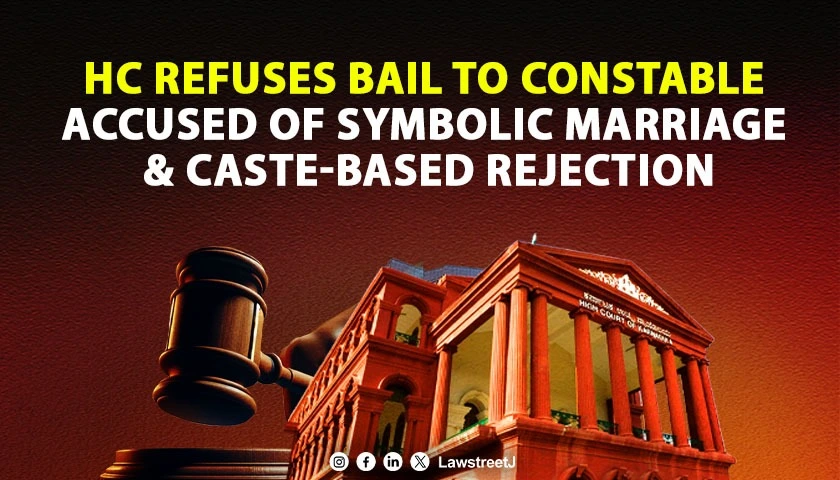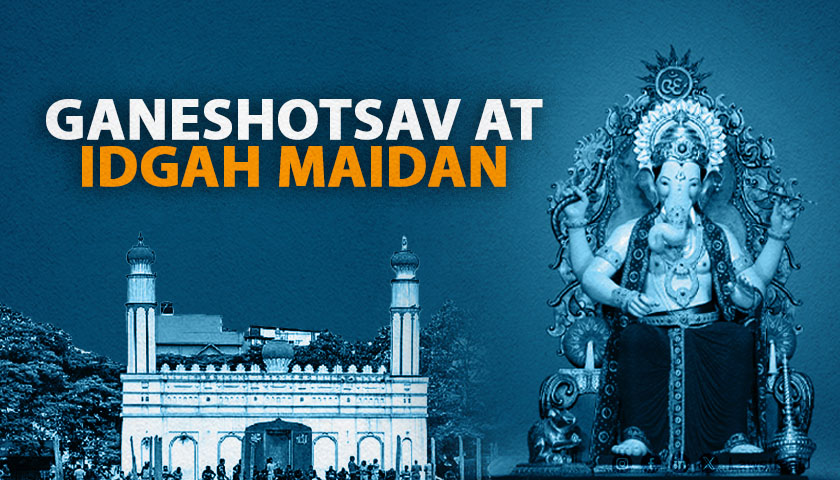Karnataka: The Karnataka High Court has refused to grant anticipatory bail to a police constable accused of entering into a symbolic marriage with a colleague, maintaining a physical relationship with her thereafter, and later rejecting her as his wife on the ground that she belonged to a Scheduled Caste.
The court of Justice S. Rachaiah dismissed the appeal filed under Section 14(A)(2) of the SC/ST (Prevention of Atrocities) Act, upholding the order of the III Additional District and Sessions Judge, Tumakuru.
The case stems from a complaint lodged by a woman constable working at the Amruthur Police Station. According to the prosecution, the appellant had proposed marriage to the complainant and, on 14 February 2023, performed a symbolic ceremony at her residence before a photograph of Lord Sai Baba. The complaint states that the appellant thereafter continued a physical relationship with her while assuring her that he would publicly disclose their marriage once certain issues were resolved.
The complainant alleged that the appellant later began distancing himself and refused to recognise the relationship, stating that marriage between them would not be possible because she belonged to a Scheduled Caste. When she pressed him to acknowledge her as his wife, he allegedly assaulted her, prompting the registration of Crime No. 81/2025 for offences under various provisions of the Bharatiya Nyaya Sanhita, 2023, along with Sections 3(1)(r), 3(1)(s), 3(1)(w)(i), and 3(2)(va) of the SC/ST (POA) Act.
On appeal, counsel for the appellant contended that the allegations were fabricated and that there was no evidence of any marriage or coercive conduct. It was also submitted that the appellant, being the sole earning member of his family, would face severe hardship if denied protection against arrest.
Opposing the plea, the State argued that the complaint clearly disclosed that the appellant rejected the complainant as his wife specifically on account of her caste, thereby attracting offences under the SC/ST (POA) Act. The High Court Government Pleader pointed to Section 18A of the Act, which bars the grant of anticipatory bail when the allegations prima facie reveal an offence under the statute.
The Court reviewed the material on record and noted that both parties were working at the same police station and had developed an intimate relationship. The complainant’s statement that the appellant performed a symbolic marriage ceremony and continued to live with her as her husband on several occasions was found sufficient at the stage of considering anticipatory bail. The Court also recorded that the allegations expressly stated that the appellant refused to accept her as his wife because she was from a Scheduled Caste.
Justice Rachaiah held that these averments, when taken at face value, satisfied the ingredients of the offences invoked and therefore attracted the statutory bar under Section 18A. The Court noted that anticipatory bail cannot be granted where the complaint discloses caste-based refusal or humiliation falling within the scope of the SC/ST (POA) Act.
Finding no grounds to interfere with the Sessions Court’s order, the High Court dismissed the appeal.
Appearance: The appellant was represented by Sri Dayanand Hiremath, Advocate; the State was represented by Smt. Waheeda M.M., High Court Government Pleader.
Case Title: Bagvantha Ray Basavantha Ray Biradar v. State of Karnataka



![Karnataka High Court: Cabinet Rank Status Not Equivalent to Ministerial Position [Read Order]](/secure/uploads/2023/09/lj_2318_fc1b99b7-aeed-472b-836e-33750bedb394.jpg)


![Woman living in adultery cannot claim maintenance: Karnataka High Court [Read Order]](/secure/uploads/2023/10/lj_3083_Women_living.jpg)




